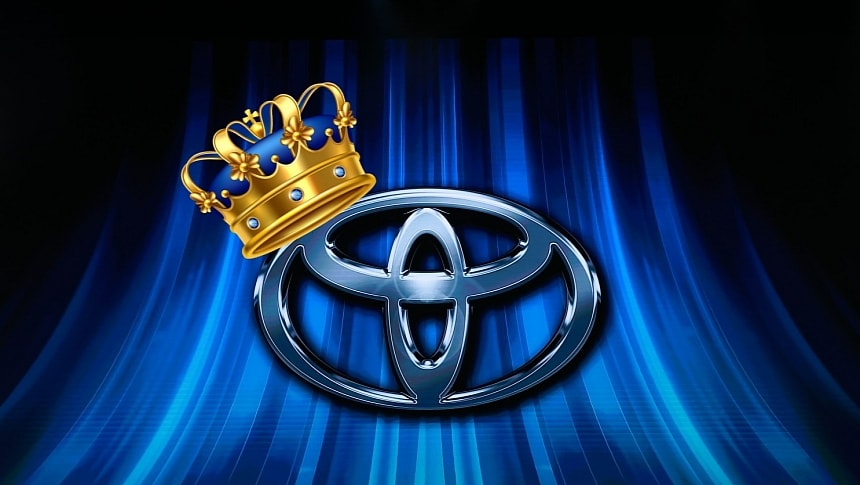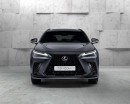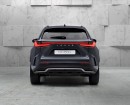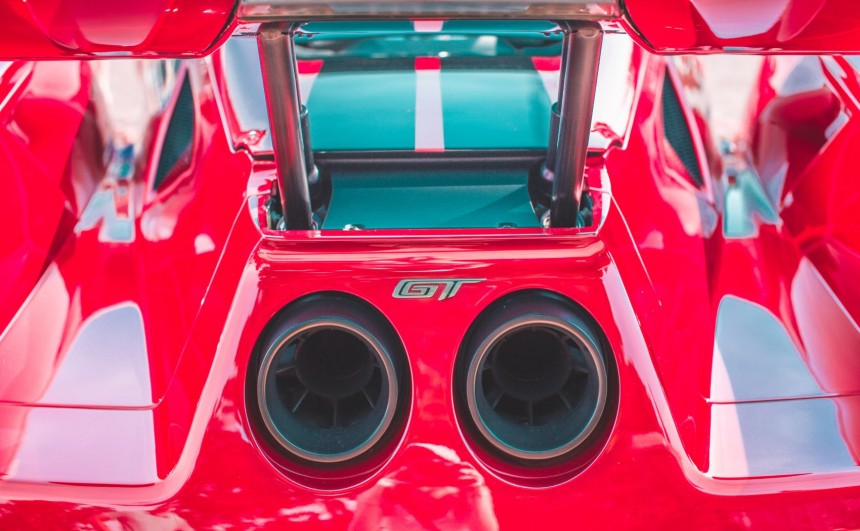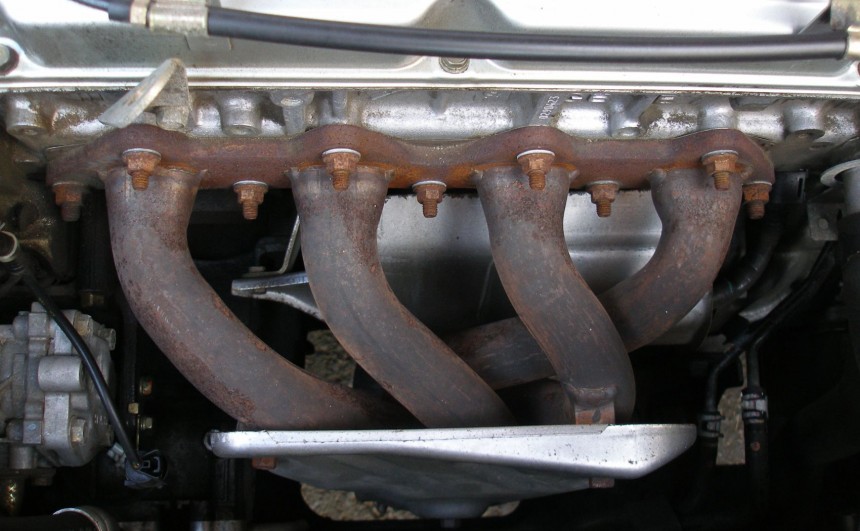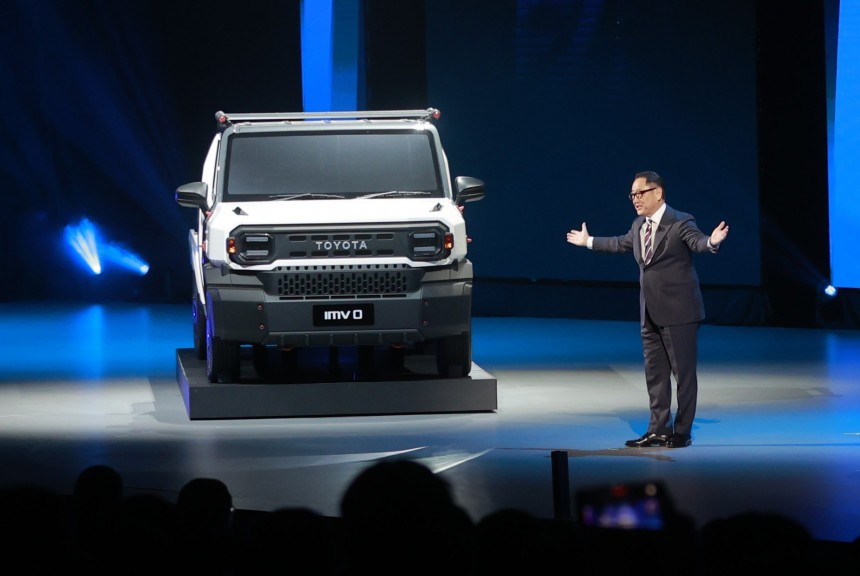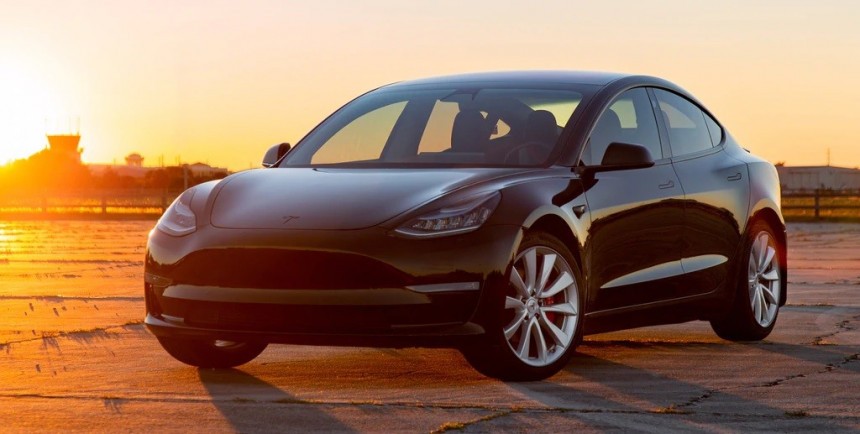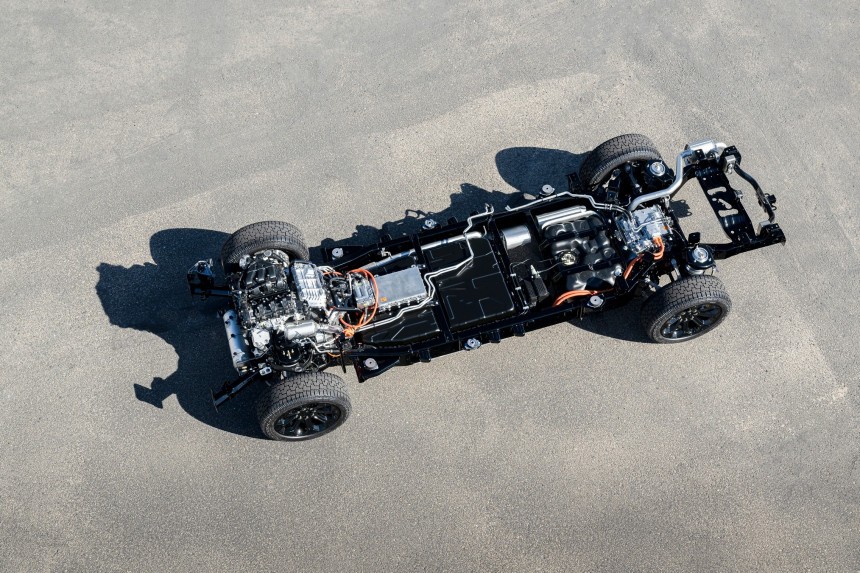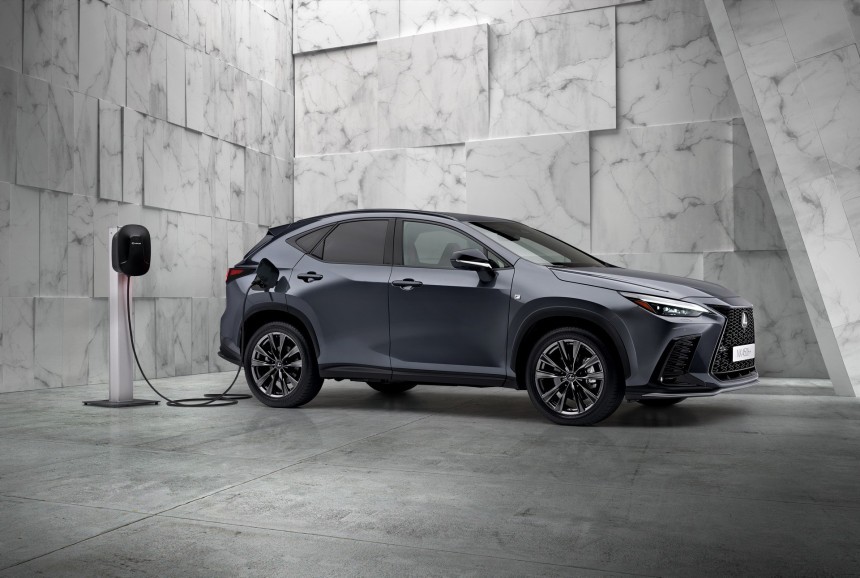For a couple of years now, I have been firm in my belief that everyone should hurry up and (gradually) replace their rides with all-electric, "zero-emission" vehicles. That might have been the wrong approach to tackling climate change, reinvigorating our economy, and improving our local environments. That being said, I realized Toyota was right.
First things first, nobody will ever convince me that the battery-electric vehicle is bad or somehow worse than the equivalent internal combustion engine-powered car. Realistically speaking, a gas-hungry vehicle will never be harmless. Park a BMW 430i and an i4 in two separate closed garages. Only one will eventually poison you to death. Carbon monoxide exposure is no joke.
However, that's an admittedly extreme example. Who leaves (or any small, enclosed garage, for that matter) with the engine turned on? The above scenario was just a simple example that showed anyone still doubting EVs that they really are much cleaner than conventional cars.
But are EVs the ultimate solution to our environmental issues caused or accelerated by personal mobility? They could be. But are they now? Well, the answer isn't a clear "yes" or "no." We need to dig a bit deeper.
In the US, the transportation sector is responsible for 29% of the country's yearly total greenhouse gas emissions (GHGs). As the name suggests, GHGs are a no-no. The main culprits are carbon dioxide, methane, and nitrous oxide. We don't want these gasses.
So, we know whose fault it is, right? It's you, I, and the truck drivers! Well, wait a minute because it's not that clear-cut.
The same source tells us that the average gas-powered car that drives 11,500 miles per year with an average fuel economy of 22.2 mpg emits around 4.6 metric tons (4.5 tons) of CO2 annually.
Carbon dioxide is the worst gas because it accelerates the greenhouse effect and is a byproduct of almost all human and animal activity. The more we can do to lower its global presence, the better.
At the same time, it's only $23 a year in carbon credits if you want to offset your "average" ride's carbon footprint and feel good about doing something for the environment. But you could also plant 200 trees and make sure they reach maturity to cancel one year of driving a vehicle that burns gas like the Honda Odyssey. Or, of course, you could just do... Nothing.
However, cars are also responsible for other types of pollution. Tires are a good example. Small rubber compound particles end up in the air we breathe, the water we drink, and the land we plant our seeds in. Brake dust is another worry.
We essentially replaced horse-drawn carriages with gas-powered cars because we were afraid of manure, and we ended up with a much larger problem.
At this point, no matter how you look at it, the battery-electric vehicle looks like our only shot at lowering transportation-related GHG emissions and cutting down the nasty particles cars can generate.
Still, it's worth noting that the main culprit is the fuel, not the car itself. Remember how Porsche is trying its best to create sustainable fuel? They want to keep ICEVs alive, but it's not guaranteed.
But that leads us to another interesting finding: passenger cars contribute only around 16% to America's global share of GHGs. In reality, that's about 2.5% when we zoom out. So, the internal combustion engine-powered ride isn't all that bad. It isn't the ideal powertrain either, just to be clear.
My father pulled the trigger and bought a PHEV. Fortunately, he likes it. I, on the other hand, have not bought that Tesla. And I might have made a great decision.
Besides conventional US cars not contributing too much to global GHG emissions, there are 57 companies out there that produce nearly 80% of the global artificially made CO2. Even if we wanted to demonize traditional cars and blame them for our global warming woes, we could not have done that without being very, very wrong.
Toyota - the company that helped Tesla in its early days - has been adamant for quite some time now about BEVs not being the only solution for a green future. It kept saying that hybrids are the best, while many disregarded its statements and even mocked the brand.
Nevertheless, that stance led to a major executive shift at the Japanese carmaker. The CEO had to step down. It also attracted heavy criticism from environmental organizations. Still, some countries like the UK silently agreed by canceling their plans to ban the sale of new gas- or diesel-powered cars, vans, and light trucks.
Like many others, I believed this position was simply a way for the Japanese brand to defend itself after it fumbled its first-ever EV. The bZ4x really wasn't a good car to buy. It lacked many important characteristics. Most importantly, it had poor range and terrible efficiency.
But hindsight is always 20/20. Toyota might have been onto something, and people like me, who wanted the best for the environment, were simply not ready to accept the carmaker's opinion as a good way forward. After all, Lucid, Rivian, Tesla, Mercedes-Benz, and others were already making good enough EVs. Why couldn't Toyota do the same?
That's what we collectively need. A green future involves using the same thing for longer periods and being able to fix it without needing many replacements. Discarding all sorts of parts isn't good for the environment. We already produce too much trash.
So, Toyota wants more hybrids and believes that hydrogen-powered cars are the zero-emission personal mobility solution we (will want and) need. It argues that cars like the Model Y - last year's world's best-selling car - require too many resources and are very complicated. That's despite the idea that EVs require fewer parts and maintenance than a gas-powered equivalent.
While I can't take the hydrogen push seriously, the part about keeping the internal combustion engine alive makes (a lot of) sense. Electrification can help us make the mechanical beating heart more efficient, which, in turn, leads to fewer oil derivatives being burned and fewer emissions coming out of the tailpipes.
But probably the best implementation we currently have is Ram's innovative and courageous solution. The 1500 Ramcharger is a pickup truck that pairs the advantages of electric motors with the internal combustion engine's ease of use. It's a range extender electric vehicle that may remind you of the BMW i3 REx.
The gas-hungry powerplant works at ideal rpm constantly, which means fuel economy will be very low in almost all scenarios. It only comes on when the large liquid-cooled high-voltage battery is close to depletion. The engine doesn't power the wheels, so it's never under heavy load. It's an ideal solution. The driver only pollutes if they forget to charge or if they need to travel long distances. Range anxiety? Pft, that's not happening!
But Toyota isn't against EVs because that would be the smartest approach. Toyota listens to customers and understands them. That's what the people want, and that's what it'll make. The brand-new 4Runner is another good example in this regard. It has many, many physical buttons inside. That's what people want. Meanwhile, major automakers still believe the minimalist two-screen solution is the best.
Thus, for at least a few years, the internal combustion engine-powered vehicle isn't going anywhere. And that's a good thing, despite all the pollution talk. It has the backing of one of the world's most important auto brands. And, honestly, it shouldn't be forced to disappear.
Batteries really don't like extreme weather. If you're lucky enough to get it moving without much hassle, the range will annoy you because it can drastically reduce during winter or peak summer.
Moreover, in North America, the auto industry is just now agreeing on a universal connector. Until NACS is put on all EVs, owners of non-Tesla rides will have to use adapters. We're in the micro-USB vs. Lightning vs. USB-C phase. Do you really want to wait for an extension, keep using apps, and be a tester on your own dime?
And keep in mind: we haven't even touched on EV depreciation, battery sourcing and production, the high cost of replacing a high-voltage battery, the pricey DC fast charging, the costlier registration, and the absurd insurance premiums.
Concluding, Toyota was right. Not all manufacturers should switch to EVs. It's great to have options. For some, a Nissan Leaf is all they need. For others, a hybrid Tundra is the ideal ride. Letting people choose is the right way forward.
Besides that, switching to an EV just for the sake of it isn't a very environmentally friendly move. It's better to properly maintain your current vehicle and extend its life until repairs become unfeasible.
In a perfect world, the internal combustion engine becomes a mere generator. Pair it with the constantly improving EV tech, and we might actually enjoy two great things: more range and less GHG emissions. But until the ideal compromise becomes mainstream, Toyota's right: the electrified mechanical beating heart is here to stay. And that makes me glad.
However, that's an admittedly extreme example. Who leaves (or any small, enclosed garage, for that matter) with the engine turned on? The above scenario was just a simple example that showed anyone still doubting EVs that they really are much cleaner than conventional cars.
But are EVs the ultimate solution to our environmental issues caused or accelerated by personal mobility? They could be. But are they now? Well, the answer isn't a clear "yes" or "no." We need to dig a bit deeper.
In the US, the transportation sector is responsible for 29% of the country's yearly total greenhouse gas emissions (GHGs). As the name suggests, GHGs are a no-no. The main culprits are carbon dioxide, methane, and nitrous oxide. We don't want these gasses.
Figuring it out
The transportation sector may have 29% (which coincidentally is the largest slice) of the pollution pie, but light-duty vehicles (a category that includes almost all types of autos with a GVWR of under 8,500 lb) account for 58% of that 29% share. So, over half of the transportation sector's GHGs come from vehicles such as sedans, hatchbacks, wagons, vans, SUVs, and pickup trucks. That's all according to the Environmental Protection Agency (EPA).The same source tells us that the average gas-powered car that drives 11,500 miles per year with an average fuel economy of 22.2 mpg emits around 4.6 metric tons (4.5 tons) of CO2 annually.
Carbon dioxide is the worst gas because it accelerates the greenhouse effect and is a byproduct of almost all human and animal activity. The more we can do to lower its global presence, the better.
At the same time, it's only $23 a year in carbon credits if you want to offset your "average" ride's carbon footprint and feel good about doing something for the environment. But you could also plant 200 trees and make sure they reach maturity to cancel one year of driving a vehicle that burns gas like the Honda Odyssey. Or, of course, you could just do... Nothing.
But wait! It gets even more interesting!
We now know that light-duty vehicles like the ones you and I drive contribute to that 58% of the US transportation sector's 29% share of the national GHG emissions. It's also important to underline that the US is responsible for around 15% of the global GHG emissions.However, cars are also responsible for other types of pollution. Tires are a good example. Small rubber compound particles end up in the air we breathe, the water we drink, and the land we plant our seeds in. Brake dust is another worry.
We essentially replaced horse-drawn carriages with gas-powered cars because we were afraid of manure, and we ended up with a much larger problem.
At this point, no matter how you look at it, the battery-electric vehicle looks like our only shot at lowering transportation-related GHG emissions and cutting down the nasty particles cars can generate.
Still, it's worth noting that the main culprit is the fuel, not the car itself. Remember how Porsche is trying its best to create sustainable fuel? They want to keep ICEVs alive, but it's not guaranteed.
A redefining moment
I wholeheartedly believed in EVs as the best solution against global warming. I disregarded that Volvo report about the high initial carbon footprint of EVs from three years ago and even convinced my dad that he should spend more on a plug-in hybrid (PHEV) for himself because he was dead set on not getting something like the Model Y. I also explored getting a Tesla for myself.My father pulled the trigger and bought a PHEV. Fortunately, he likes it. I, on the other hand, have not bought that Tesla. And I might have made a great decision.
Besides conventional US cars not contributing too much to global GHG emissions, there are 57 companies out there that produce nearly 80% of the global artificially made CO2. Even if we wanted to demonize traditional cars and blame them for our global warming woes, we could not have done that without being very, very wrong.
Toyota - the company that helped Tesla in its early days - has been adamant for quite some time now about BEVs not being the only solution for a green future. It kept saying that hybrids are the best, while many disregarded its statements and even mocked the brand.
Nevertheless, that stance led to a major executive shift at the Japanese carmaker. The CEO had to step down. It also attracted heavy criticism from environmental organizations. Still, some countries like the UK silently agreed by canceling their plans to ban the sale of new gas- or diesel-powered cars, vans, and light trucks.
But hindsight is always 20/20. Toyota might have been onto something, and people like me, who wanted the best for the environment, were simply not ready to accept the carmaker's opinion as a good way forward. After all, Lucid, Rivian, Tesla, Mercedes-Benz, and others were already making good enough EVs. Why couldn't Toyota do the same?
Follow what leader?
Well, as it turns out, not everyone should just switch to EV production at once. Toyota has been the epitome of dependability for decades. It sells the most cars worldwide, and that's enough to understand why people pick this brand over its competitors. If such a car company can go against the trend, then why shouldn't more people listen to what it has to say? After all, the Japanese marque is known for manufacturing reliable drivetrains.That's what we collectively need. A green future involves using the same thing for longer periods and being able to fix it without needing many replacements. Discarding all sorts of parts isn't good for the environment. We already produce too much trash.
While I can't take the hydrogen push seriously, the part about keeping the internal combustion engine alive makes (a lot of) sense. Electrification can help us make the mechanical beating heart more efficient, which, in turn, leads to fewer oil derivatives being burned and fewer emissions coming out of the tailpipes.
Something that works for the many, not the few
Various degrees of electrification can also give us more types of cars that can be even more environmentally friendly. Take the BMW X5 50e as an example. That SUV has a real-world maximum all-electric range of around 35 miles. A commuter can make use of that on a daily basis and drastically lower the reliance on gas. Plus, charging at home is a lot cheaper than filling up with fuel.But probably the best implementation we currently have is Ram's innovative and courageous solution. The 1500 Ramcharger is a pickup truck that pairs the advantages of electric motors with the internal combustion engine's ease of use. It's a range extender electric vehicle that may remind you of the BMW i3 REx.
But Toyota isn't against EVs because that would be the smartest approach. Toyota listens to customers and understands them. That's what the people want, and that's what it'll make. The brand-new 4Runner is another good example in this regard. It has many, many physical buttons inside. That's what people want. Meanwhile, major automakers still believe the minimalist two-screen solution is the best.
Thus, for at least a few years, the internal combustion engine-powered vehicle isn't going anywhere. And that's a good thing, despite all the pollution talk. It has the backing of one of the world's most important auto brands. And, honestly, it shouldn't be forced to disappear.
It ain't all that rosy
Moreover, people have seen how limited the current EV technology is. If it's too cold outside and you haven't charged overnight, you might want to take the bus. Otherwise, you might be in for a rude awakening at a DC fast charger.Moreover, in North America, the auto industry is just now agreeing on a universal connector. Until NACS is put on all EVs, owners of non-Tesla rides will have to use adapters. We're in the micro-USB vs. Lightning vs. USB-C phase. Do you really want to wait for an extension, keep using apps, and be a tester on your own dime?
And keep in mind: we haven't even touched on EV depreciation, battery sourcing and production, the high cost of replacing a high-voltage battery, the pricey DC fast charging, the costlier registration, and the absurd insurance premiums.
Concluding, Toyota was right. Not all manufacturers should switch to EVs. It's great to have options. For some, a Nissan Leaf is all they need. For others, a hybrid Tundra is the ideal ride. Letting people choose is the right way forward.
Besides that, switching to an EV just for the sake of it isn't a very environmentally friendly move. It's better to properly maintain your current vehicle and extend its life until repairs become unfeasible.
In a perfect world, the internal combustion engine becomes a mere generator. Pair it with the constantly improving EV tech, and we might actually enjoy two great things: more range and less GHG emissions. But until the ideal compromise becomes mainstream, Toyota's right: the electrified mechanical beating heart is here to stay. And that makes me glad.
